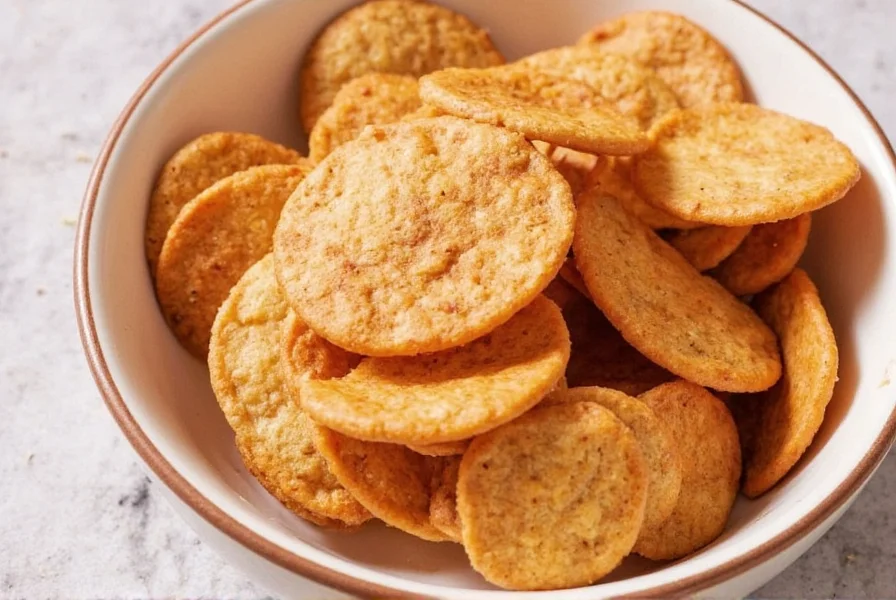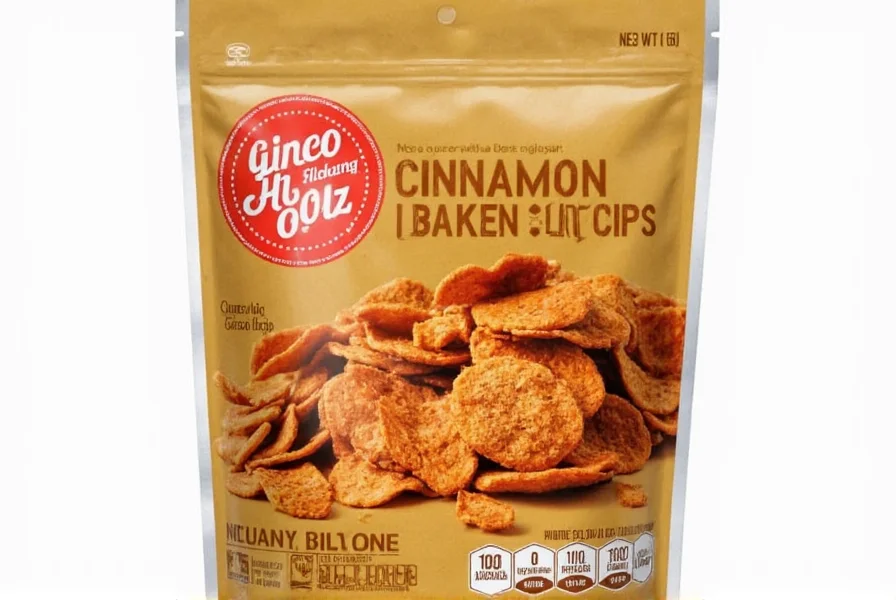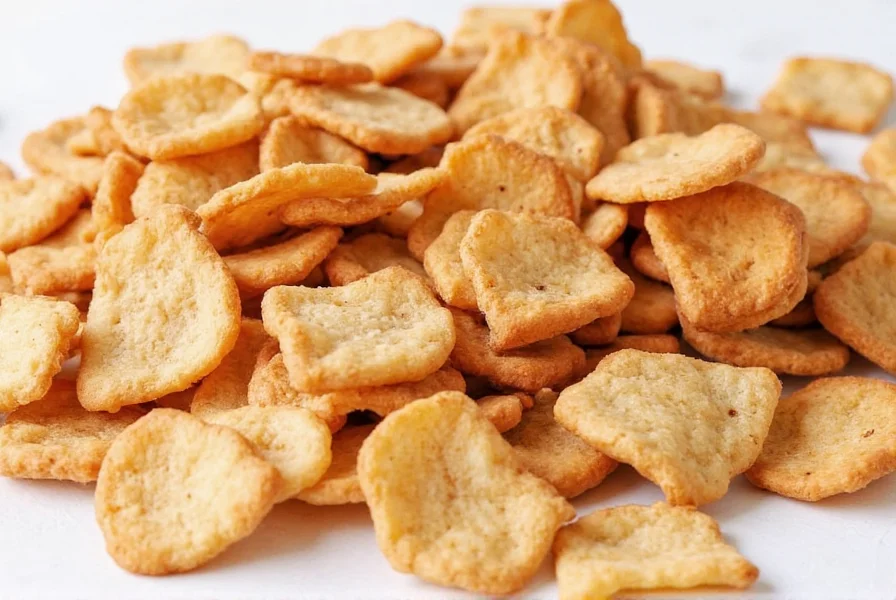Cinnamon baking chips offer bakers a convenient way to incorporate consistent cinnamon flavor throughout baked goods. These specialized chips maintain their shape during baking while releasing their aromatic spice, making them superior to simply sprinkling ground cinnamon into dough. Their sugar-based composition allows them to melt slightly when heated, creating those desirable pockets of intensified cinnamon flavor that characterize well-made cinnamon-infused treats.
What Exactly Are Cinnamon Baking Chips?
Manufactured similarly to chocolate chips but without cocoa solids, cinnamon baking chips typically contain:
- Sugar (often a combination of granulated and brown sugar)
- Vegetable oil or palm oil
- Cinnamon extract or high-quality ground cinnamon
- Emulsifiers like soy lecithin
- Natural and artificial flavorings
- Coloring agents (sometimes)
The precise formulation varies by manufacturer, with premium versions using higher cinnamon content and avoiding artificial ingredients. Unlike chocolate chips that require tempering, cinnamon chips have a simpler production process where the mixture is heated, flavored, then cooled into chip form.

Cinnamon Baking Chips vs Chocolate Chips: Key Differences
Understanding how cinnamon baking chips differ from traditional chocolate chips helps bakers make informed substitutions and recipe adjustments:
| Characteristic | Cinnamon Baking Chips | Chocolate Chips |
|---|---|---|
| Primary Flavor | Warm cinnamon spice | Chocolate (bitter to sweet) |
| Cocoa Content | None | 20-50% depending on type |
| Melting Point | Lower (120-140°F) | Higher (86-90°F for dark chocolate) |
| Browning Effect | Creates caramelized spots | Creates chocolate pockets |
| Best Paired With | Apples, nuts, oats, sweet potatoes | Vanilla, coffee, caramel, berries |
Optimal Applications for Cinnamon Baking Chips
Cinnamon baking chips shine in recipes where their distinctive flavor can be the star rather than competing with chocolate. Professional bakers recommend these applications for best results:
- Cinnamon chip cookies - Create a cookie similar to chocolate chip but with warm spice notes
- Muffins and quick breads - Especially apple, banana, or pumpkin varieties
- Coffee cakes - Swirl them into batter or use as a topping
- Oat-based bars - Combine with oats and nuts for granola-like treats
- Cinnamon chip scones - Add to biscuit dough before cutting
- Breakfast pastries - Incorporate into danish or turnover fillings
When developing recipes with cinnamon baking chips, reduce additional cinnamon in the recipe by 25-50% to prevent overpowering the final product. The chips themselves provide concentrated flavor that distributes evenly throughout the baked good.
Finding Quality Cinnamon Baking Chips
Not all cinnamon baking chips deliver equal flavor quality. When selecting a product, look for these characteristics:
- Real cinnamon extract or high-quality ground cinnamon listed near the beginning of ingredients
- Avoid products where "artificial flavor" is the primary cinnamon source
- Check for allergen information if needed (most are naturally gluten-free)
- Consider organic options for cleaner ingredient profiles
- Read reviews specifically mentioning flavor intensity and melting properties
Major grocery chains typically carry at least one brand in their baking aisle, often near the chocolate chips. Health food stores may offer specialty varieties with alternative sweeteners or organic ingredients. Online retailers provide the widest selection for those seeking specific formulations.

Recipe Conversion Guide: Substituting Cinnamon Chips
When adapting traditional chocolate chip recipes to use cinnamon baking chips, follow these professional baking guidelines:
- Use a 1:1 substitution ratio by volume (1 cup chocolate chips = 1 cup cinnamon chips)
- Reduce additional cinnamon in the recipe by 1/4 to 1/2 teaspoon per cup of chips
- Increase brown sugar by 1-2 tablespoons to complement the spice notes
- Add 1/4 teaspoon vanilla extract to balance the flavor profile
- Consider adding complementary spices like nutmeg or allspice at 1/8 teaspoon increments
For recipes specifically designed for cinnamon chips, professional bakers recommend using between 3/4 to 1 cup of chips per standard batch of cookies. This provides sufficient flavor pockets without overwhelming the dough structure.
Storage Recommendations
Proper storage maintains the quality and usability of cinnamon baking chips:
- Store in a cool, dry place away from direct sunlight
- Keep in original packaging with tight-sealing lid or transfer to airtight container
- Shelf life typically 12-18 months when stored properly
- Refrigeration not necessary but can extend freshness in humid climates
- Freezing is possible for long-term storage (up to 2 years)
Unlike chocolate chips that can develop bloom when temperature fluctuates, cinnamon chips are less sensitive to minor temperature changes. However, exposure to moisture can cause them to clump together, so maintaining a dry storage environment is crucial.
Troubleshooting Common Issues
Bakers sometimes encounter these challenges when working with cinnamon baking chips:
- Chips sinking to bottom - Toss chips in 1-2 tablespoons of flour before folding into batter
- Overpowering cinnamon flavor - Reduce additional cinnamon in recipe; use fewer chips
- Chips not melting sufficiently - Ensure oven temperature is accurate; chips melt better in moist batters
- Color bleeding - Some colored varieties may tint light batters; opt for natural-colored chips
- Clumping in packaging - Break apart gently before measuring; store with silica packet
Creating Homemade Cinnamon Baking Chips
For those seeking complete ingredient control, homemade cinnamon chips are achievable with basic kitchen equipment:
- Melt 1 cup coconut oil or refined palm oil over low heat
- Whisk in 2 cups powdered sugar until smooth
- Add 2-3 tablespoons high-quality ground cinnamon
- Mix in 1/4 teaspoon salt and 1 teaspoon cinnamon extract
- Pour mixture onto parchment paper in small disc shapes
- Refrigerate until firm (about 30 minutes)
- Store in airtight container in cool place
This homemade version lacks the precise melting properties of commercial chips but offers superior flavor control and avoids artificial ingredients. The texture will be more crumbly than store-bought varieties but works well in most applications.
FAQ: Cinnamon Baking Chips
Are cinnamon baking chips gluten-free?
Most cinnamon baking chips are naturally gluten-free as they contain sugar, oil, and cinnamon without wheat products. However, always check the packaging for gluten-free certification, especially if you have celiac disease, as some brands may be processed in facilities that handle wheat or include gluten-containing additives.
Can I substitute ground cinnamon for cinnamon baking chips?
While you can substitute ground cinnamon, the results differ significantly. Ground cinnamon distributes evenly but lacks the concentrated flavor pockets that baking chips provide. For every 1 cup of cinnamon chips, use 1-2 tablespoons ground cinnamon mixed into dry ingredients, plus 2-3 tablespoons extra sugar to compensate for the missing sweet base of the chips.
Do cinnamon baking chips contain dairy?
Most standard cinnamon baking chips are dairy-free, containing only sugar, oil, and cinnamon flavorings. However, some premium varieties may include dairy derivatives, so always check the ingredient list if dairy avoidance is necessary. Many brands specifically label their products as dairy-free for allergy-conscious consumers.
How do cinnamon baking chips affect baking time?
Cinnamon baking chips generally don't significantly alter baking time compared to chocolate chips. However, their sugar content may cause baked goods to brown slightly faster. Watch for visual cues like golden edges rather than relying solely on timer settings, and consider rotating pans halfway through baking for even results.
Are there vegan cinnamon baking chips available?
Yes, most cinnamon baking chips are naturally vegan as they typically contain only sugar, vegetable oil, and cinnamon. Unlike chocolate chips which often contain dairy, cinnamon chips rarely include animal products. Always verify the ingredient list for any unexpected additives like confectioner's glaze (which contains shellac) or dairy derivatives in flavored varieties.











 浙公网安备
33010002000092号
浙公网安备
33010002000092号 浙B2-20120091-4
浙B2-20120091-4